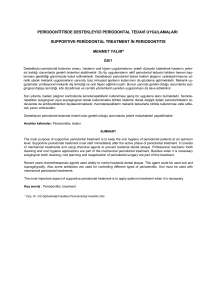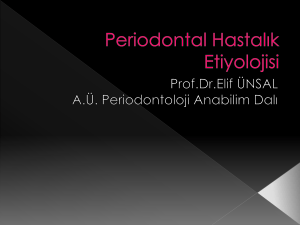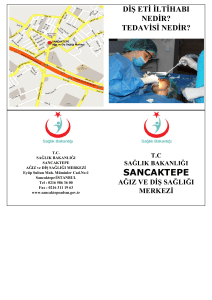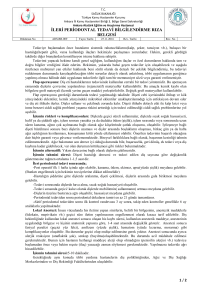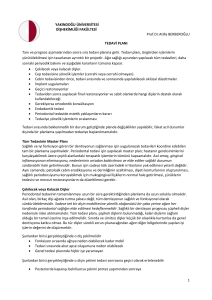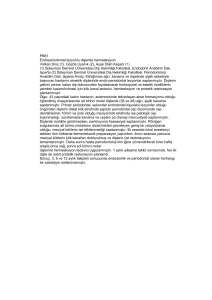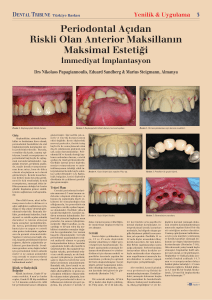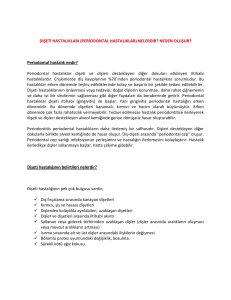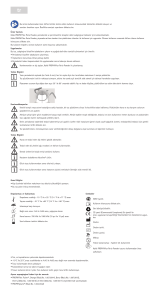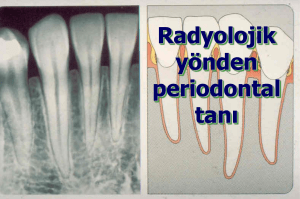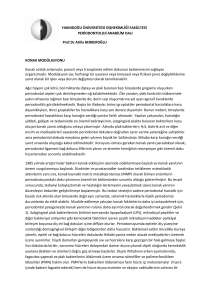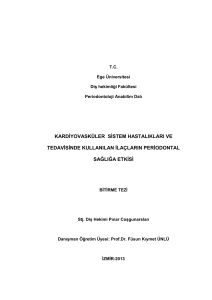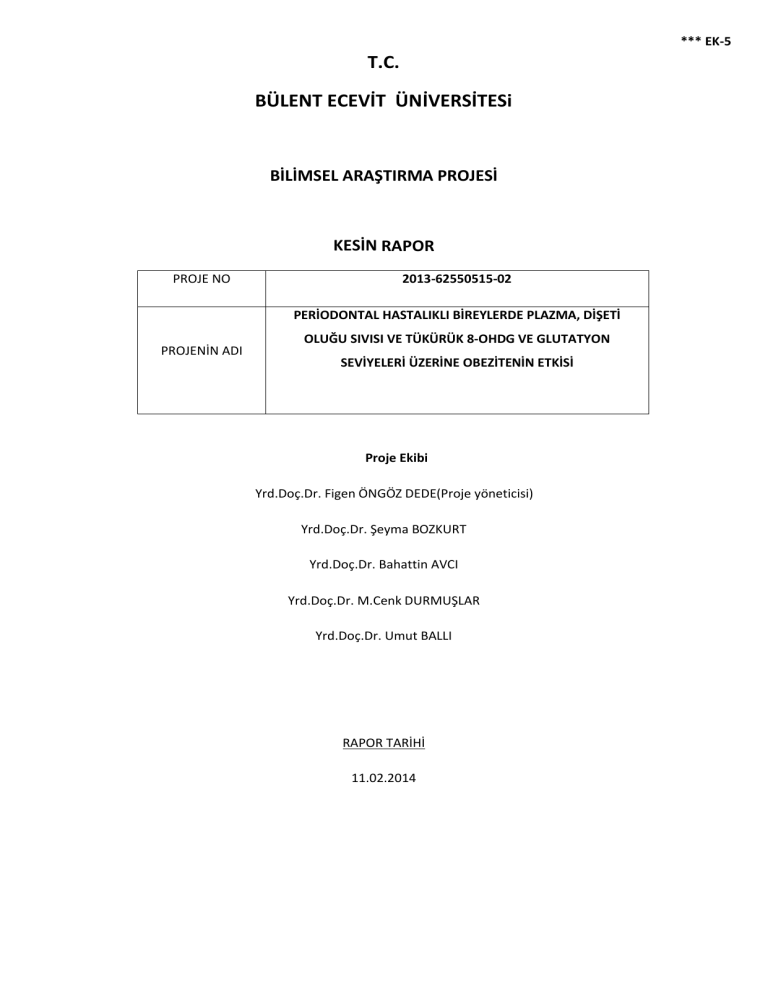
*** EK-5
T.C.
BÜLENT ECEVİT ÜNİVERSİTESi
BİLİMSEL ARAŞTIRMA PROJESİ
KESİN RAPOR
PROJE NO
2013-62550515-02
PERİODONTAL HASTALIKLI BİREYLERDE PLAZMA, DİŞETİ
PROJENİN ADI
OLUĞU SIVISI VE TÜKÜRÜK 8-OHDG VE GLUTATYON
SEVİYELERİ ÜZERİNE OBEZİTENİN ETKİSİ
Proje Ekibi
Yrd.Doç.Dr. Figen ÖNGÖZ DEDE(Proje yöneticisi)
Yrd.Doç.Dr. Şeyma BOZKURT
Yrd.Doç.Dr. Bahattin AVCI
Yrd.Doç.Dr. M.Cenk DURMUŞLAR
Yrd.Doç.Dr. Umut BALLI
RAPOR TARİHİ
11.02.2014
I. ÖZET
PERİODONTAL HASTALIKLI BİREYLERDE PLAZMA, DİŞETİ OLUĞU SIVISI
VE TÜKÜRÜK 8-OHDG VE GLUTATYON SEVİYELERİ ÜZERİNE OBEZİTENİN
ETKİSİ
Figen ÖNGÖZ DEDE
Bülent Ecevit Üniversitesi Zonguldak, Şubat 2014
Obezite sonucu dolaşım sisteminde artan reaktif oksijen türlerinin (ROS), periodontal
dokularda oksidatif hasar meydana getirebileceği bildirilmiştir. Bu çalışmanın amacı obezite
sonucu dolaşım sisteminde artan ROS’un,
periodontal sağlıklı ve hastalıklı bireylerin
periodontal dokularındaki oksidatif stres oluşumuna etkisini incelemektir.
Çalışmaya obez ve normal kilolu teşhisi konulan, yaş aralığı 25-65 arasında değişen
72 birey dahil edildi. Obez ve normal kilolu bireyler periodontal sağlıklı (S), gingivitisli (G)
ve kronik periodontitisli (KP)’li olarak ayrıldı ve toplam 6 alt grup oluşturuldu. Plak indeksi
(PI), gingival indeks (GI), cep derinliği (CD) ve klinik ataşman seviyesi (KAS), sondalamada
kanama (SK) indeksini içeren klinik periodontal değerlendirmeler ve radyografik incelemeler
kaydedildi. Tüm bireylerden çalışma başlangıcında dişeti oluğu sıvısı (DOS), tükürük ve
plazma örnekleri alındı. KP’li ve G’li gruplardan başlangıç periodontal tedavileri yapıldıktan
1 ay sonra DOS, tükürük ve plazma örnekleri ile klinik ölçümler tekrarlandı. Alınan bu
örneklerde ELISA (Enzyme-linked immunosorbent assay) yöntemi ile oksidatif DNA hasar
ürünü olan 8-OHdG (8-Hidroksideoksiguanozin) seviyeleri ve hücresel anti-oksidan
defansında merkez bir rol oynayan total glutatyon seviyeleri incelendi.
Obez ve normal kilolu KP’li bireylerin DOS örneklerinde 8-OHdG seviyeleri diğer
gruplara göre istatistiksel olarak anlamlı derecede yüksek ve başlangıç periodontal tedavi
sonrası DOS 8-OHdG seviyelerinde istatistiksel olarak anlamlı bir azalış olduğu belirlendi
(p<0,05). Ayrıca KP gruplarında DOS total glutatyon seviyeleri diğer gruplara oranla
istatistiksel olarak düşük olduğu ve tedavi ile birlikte seviyelerinin yükseldiği belirlendi
(p<0,05). DOS 8-OHdG seviyeleri ile Pİ, Gİ ve SK arasında pozitif bir korelasyon olduğu
bulundu (p<0,05). Obez KP’li bireylerin plazma 8-OHdG seviyeleri normal kilolu KP’li
bireylere göre istatistiksel olarak daha yüksek olduğu, plazma total glutatyon seviyelerinin ise
daha düşük olduğu belirlendi (p<0,05).
Çalışmamız obez bireylerin dolaşımında normal kilolu bireylere göre daha yüksek 8OHdG ve daha düşük total glutatyon seviyeleri olduğunu ortaya koymuştur. Obezitenin
periodontal hastalıkla birlikte periodontal dokularda artan oksidatif stresi şiddetlendirebileceği
gösterilmiştir.
ABSTRACT
EFFECTS OF OBESITY ON 8-OHDG AND GLUTATHIONE LEVELS IN PLASMA,
GINGIVAL CREVICULAR FLUID AND SALIVA IN PATIENTS WITH
PERIODONTAL DİSEASE
Figen ONGOZ DEDE
University of Bulent Ecevit Zonguldak, February 2014
Obesity as a result of increased reactive oxygen species(ROS) in the circulatory
system, have been reported that can arise oxidative damage in the periodontal tissues. The
purpose of this study investigated that the effect in the formation of oxidative stress in the
periodontal tissues of periodontally healthy and diseased individuals of increased ROS of
obesity as a result in the circulatory system.
In this study were included 72 subjects between 25-65 years of age range, diagnosed
as obese and normal weight. Obese and normal weight individuals was separated as chronic
periodontitis (CP), gingivitis (G) and periodontally healthy control (C) and were formed a
total six sub-groups. Clinical parameters including plaque index (PI), gingival index (GI),
bleeding on probing (BOP), clinical attachment levels (CAL) and radiographic evaluations
were recorded. Gingival crevicular fluid (GCF), plasma and saliva samples were obtained at
the beginning of the study from all individuals. It was proceed to obtain GCF, plasma and
saliva samples from patients with CP and G at one month after periodontal treatment and
clinical indices were also repeated. 8-OHdG (8-hydroxydeoxyguanosine) which is the product
of oxidative DNA damage and total glutathione levels which plays a central role for cellular
anti-oxidant defense were investigated by ELISA (Enzyme-linked immunosorbent assay)
method.
GCF 8-OHdG levels for obese and normal weight individuals with chronic
periodontitis were found significantly higher than the other groups (p<0,05). GCF 8-OHdG
levels for obese and normal weight individuals with chronic periodontitis were statistically
decreased after initial periodontal therapy. It was also determined that, GCF total glutathione
levels for individuals with chronic periodontitis were statistically lower than other groups.
However these levels were increased after initial periodontal therapy. A significant positive
correlation was found between 8-OHdG levels of GCF and PI, GI, BOP (p<0,05). Plasma 8OHdG levels for obese CP groups were significantly higher than normal weight CP groups
while plasma total glutathione levels were found significantly lower (p<0,05).
Our study revealed that 8-OHdG levels in the circulatory system for obese CP
individuals were significantly higher than normal weight CP individuals and then total
glutathione levels were significantly lower. Our study showed that obesity was able to
exacerbate increased oxidative stress in the periodontal tissues together with periodontal
disease.

